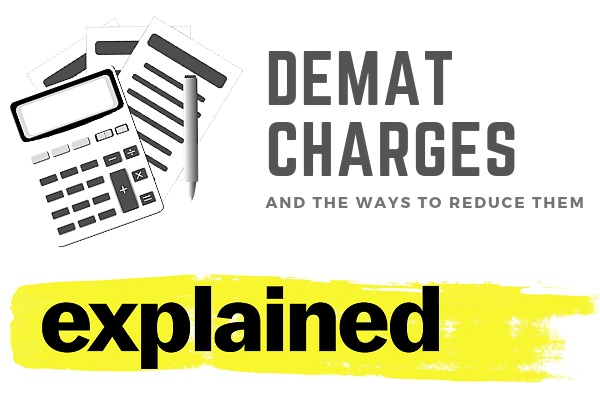Demat is essential for holding and trading shares, bonds, and other securities in electronic form. These accounts offer a convenient and secure way to manage your investments, but they come with associated fees and charges. Understanding these charges is crucial for making informed decisions about your trading activities.
Types of Demat Account Charges
Demat account India charges can be broadly categorized into three main types:
Account Opening Charges: These charges are typically incurred when you first open a demat. They may include fees for processing your application, verifying your documents, and setting up your account.
Annual Maintenance Charges (AMC): These charges are levied on an annual basis to maintain your demat account India. They may vary depending on the DP and the type of account you choose.
Transaction Charges: These charges are incurred each time you execute a trade, whether it’s buying or selling securities. They may be charged as a percentage of the transaction value or as a flat fee per transaction.
Detailed Breakdown of Charges for Demat
Here’s a more detailed breakdown of the various demat account India charges:
These charges typically range from ₹100 to ₹500, depending on the DP. Some DPs may offer waivers or discounts on account opening charges for new customers.
The AMC charges typically range from ₹150 to ₹800 per year, depending on the DP and the account type. Some DPs may offer tiered AMC structures, with higher charges for accounts with larger holdings.
Demat based Transaction charges can be either a percentage of the transaction value or a flat fee. For equity transactions, the percentage charge typically ranges from 0.01% to 0.05%, while the flat fee can range from ₹10 to ₹25 per transaction. For derivatives and currency transactions, the charges may be higher.
Additional Demat Account India Charges to Consider
Apart from the standard charges mentioned above, there may be additional charges associated with demat, such as:
Pledge Charges: These charges are incurred when you pledge your securities as collateral for a loan. They may vary depending on the DP and the amount of the loan.
Dematerialization Charges: These charges are incurred when you convert physical shares into electronic form. They may vary depending on the DP and the number of shares being dematerialized.
Tips to Minimize Demat Account Charges
Compare DPs: Compare the charges of different DPs before opening an account. Choose a DP that offers competitive charges and services that align with your needs.
- Negotiate Demat Charges: Some DPs may be willing to negotiate charges, especially for large account holders or frequent traders.
- Consider Demat Account India Type: Choose an account type that suits your trading volume and activity level. Higher-tier accounts may offer lower charges per transaction.
- Optimize Trade Execution: Plan your trades to minimize the number of transactions and reduce transaction costs.
- Use Brokerage Platforms: Some brokerage platforms offer discounts or cashback on demat account India charges for their customers.
- Stay Informed: Stay updated on the latest charges and fee structures of your DP. Some DPs may revise their charges periodically.
Read more : Key Factors to Evaluate When Purchasing GI Sheets in UAE
Remember, demat account India charges can vary significantly between DPs and account types. It’s essential to carefully compare charges, negotiate when possible, and optimize your trading activities to minimize costs and maximize your investment returns.




